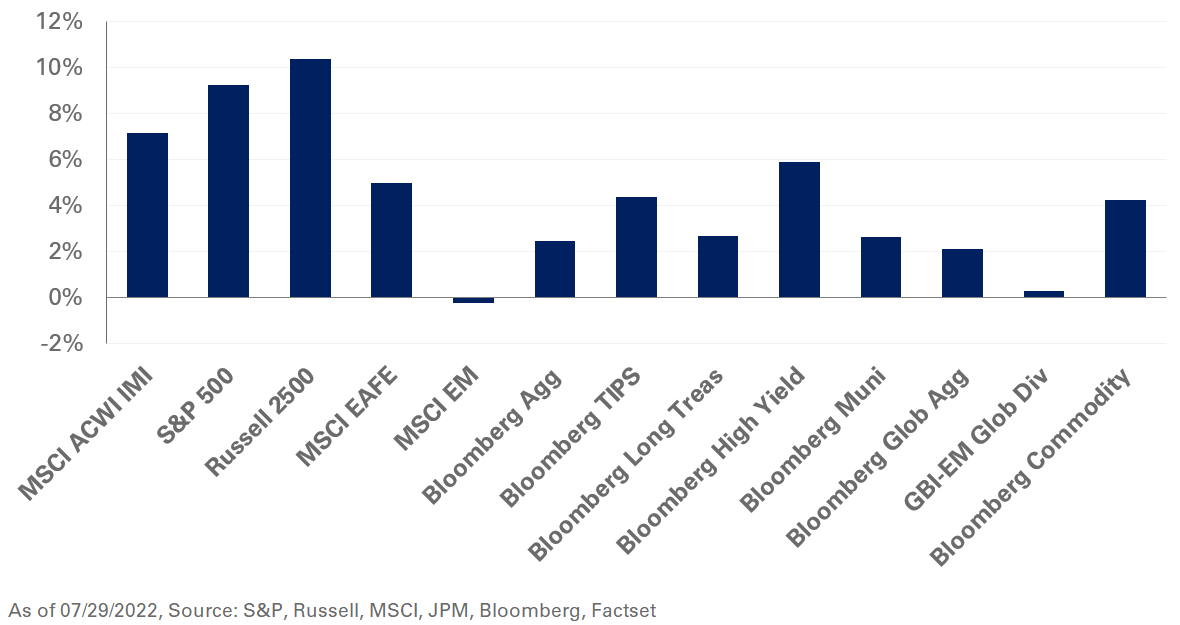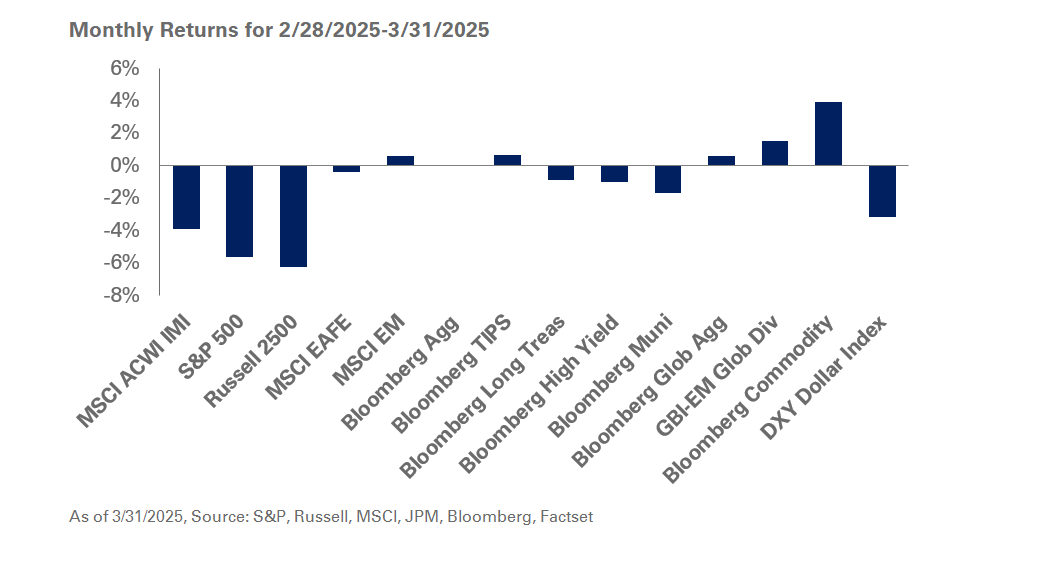Stocks rebounded in July despite rising inflation and pessimistic macroeconomic data. In the U.S., headline CPI trended higher, rising 9.1% over the 12 months ending in June. On an inflation-adjusted basis, the U.S. economy contracted at an annual rate of 0.9% in the second quarter, and entered a technical recession with two consecutive quarters of negative real GDP growth. As anticipated, the Federal Reserve hiked benchmark rates by 75 basis points to a range of 2.25%-2.50%, a new high since July 2019. In addition, the European Central Bank raised its key rates by 50 basis points, its first increase since 2011.
In equities, the S&P 500 Index outperformed in July, outpacing the MSCI ACWI ex U.S. Index 9.2% to 3.4%. Growth equities benefited from lower yields and outperformed value stocks with the Russell 1000 Growth and Value indexes up 12% and 6.6%, respectively. Outside of the U.S., the MSCI EAFE Index gained 5%, while the MSCI Emerging Markets lost 0.2%. Notably, the MSCI China Index fell 9.5% last month after disappointing economic data and lower-than-expected monetary stimulus exacerbated concerns around growth.
Global yields shifted lower amid increased demand for sovereign bonds. In the U.S., the Treasury yield curve inverted after the two- and 10-year Treasury yield decreased three and 33 basis points, respectively. High-yield assets benefited from falling rates and tightening credit spreads. As a result, the Bloomberg U.S. Corporate Index outperformed, rising 5.9% after spreads tightened by 100-to-469 basis points.
NEPC’s stance towards risk assets remains unfavorable given the uncertain growth and inflation dynamics. We recommend building exposure to short-term investment-grade credit as higher yields offer an attractive defensive position. We also suggest adding exposure to value stocks in U.S. large-cap equity to mitigate the portfolio impact of rising interest rates and inflation normalizing above market expectations. In addition, we still encourage a dedicated allocation to assets that support liquidity needs in periods of stress.




